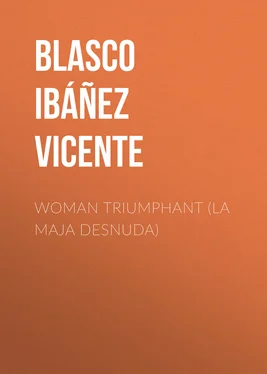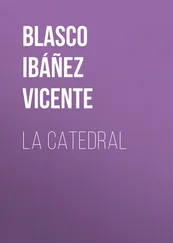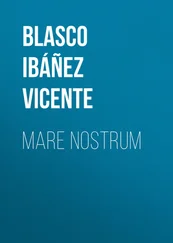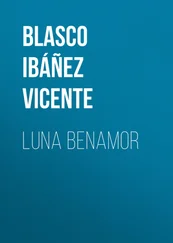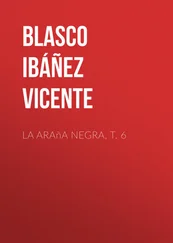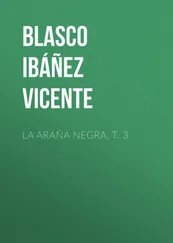Vicente Blasco Ibáñez - Woman Triumphant (La Maja Desnuda)
Здесь есть возможность читать онлайн «Vicente Blasco Ibáñez - Woman Triumphant (La Maja Desnuda)» — ознакомительный отрывок электронной книги совершенно бесплатно, а после прочтения отрывка купить полную версию. В некоторых случаях можно слушать аудио, скачать через торрент в формате fb2 и присутствует краткое содержание. Жанр: foreign_prose, foreign_antique, на английском языке. Описание произведения, (предисловие) а так же отзывы посетителей доступны на портале библиотеки ЛибКат.
- Название:Woman Triumphant (La Maja Desnuda)
- Автор:
- Жанр:
- Год:неизвестен
- ISBN:нет данных
- Рейтинг книги:5 / 5. Голосов: 1
-
Избранное:Добавить в избранное
- Отзывы:
-
Ваша оценка:
- 100
- 1
- 2
- 3
- 4
- 5
Woman Triumphant (La Maja Desnuda): краткое содержание, описание и аннотация
Предлагаем к чтению аннотацию, описание, краткое содержание или предисловие (зависит от того, что написал сам автор книги «Woman Triumphant (La Maja Desnuda)»). Если вы не нашли необходимую информацию о книге — напишите в комментариях, мы постараемся отыскать её.
Woman Triumphant (La Maja Desnuda) — читать онлайн ознакомительный отрывок
Ниже представлен текст книги, разбитый по страницам. Система сохранения места последней прочитанной страницы, позволяет с удобством читать онлайн бесплатно книгу «Woman Triumphant (La Maja Desnuda)», без необходимости каждый раз заново искать на чём Вы остановились. Поставьте закладку, и сможете в любой момент перейти на страницу, на которой закончили чтение.
Интервал:
Закладка:
He passed through the vestibule and opened the first glass door. Instantly the noises of the world outside ceased; the rattling of the carriages in the Prado; the bells of the street-cars, the dull rumble of the carts, the shrill cries of the children who were running about on the slopes. He opened the second door, and his face, swollen by the cold, felt the caress of warm air, buzzing with the vague hum of silence. The footfalls of the visitors reverberated in the manner peculiar to large, unoccupied buildings. The slam of the door, as it closed, resounded like a cannon shot, passing from hall to hall through the heavy curtains. From the gratings of the registers poured the invisible breath of the furnaces. The people, on entering, spoke in a low tone, as if they were in a cathedral; their faces assumed an expression of unnatural seriousness, as though they were intimidated by the thousands of canvases that lined the walls, by the enormous busts that decorated the circle of the rotunda and the middle of the central salon.
On seeing Renovales, the two door-keepers, in their long frock-coats, started to their feet. They did not know who he was, but he certainly was somebody. They had often seen that face, perhaps in the newspapers, perhaps on match-boxes. It was associated in their minds with the glory of popularity, with the high honors reserved for people of distinction. Presently they recognized him. It was so many years since they had seen him there! And the two attendants, with their caps covered with gold-braid in their hands and with an obsequious smile, came forward towards the great artist.
"Good morning, Don Mariano. Did Señor de Renovales wish something? Did he want them to call the curator?" They spoke with oily obsequiousness, with the confusion of courtiers who see a foreign sovereign suddenly enter their palace, recognizing him through his disguise.
Renovales rid himself of them with a brusque gesture and cast a glance over the large decorative canvases of the rotunda, that recalled the wars of the 17th century; generals with bristling mustaches and plumed slouch-hat, directing the battle with a short baton, as though they were directing an orchestra, troops of arquebusiers disappearing downhill with banners of red and blue crosses at their front, forests of pikes rising from the smoke, green meadows of Flanders in the backgrounds—thundering, fruitless combats that were almost the last gasps of a Spain of European influence. He lifted a heavy curtain and entered the spacious salon, where the people at the other end looked like little wax figures under the dull illumination of the skylights.
The artist continued straight ahead, scarcely noticing the pictures, old acquaintances that could tell him nothing new. His eyes sought the people without, however, finding in them any greater novelty. It seemed as though they formed a part of the building and had not moved from it in many years; good-natured fathers with a group of children before their knees, explaining the meaning of the pictures; a school teacher, with her well-behaved and silent pupils who, in obedience to the command of their superior, passed without stopping before the lightly clad saints; a gentleman with two priests, talking loudly, to show that he was intelligent and almost at home there; several foreign ladies with their veils caught up over their straw hats and their coats on their arms, consulting the catalogue, all with a sort of family-air, with identical expressions of admiration and curiosity, until Renovales wondered if they were the same ones he had seen there years before, the last time he was there.
As he passed, he greeted the great masters mentally; on one side the holy figures of El Greco, with their greenish or bluish spirituality, slender and undulating; beyond, the wrinkled, black heads of Ribera, with ferocious expressions of torture and pain—marvelous artists, whom Renovales admired, while determined not to imitate them. Afterwards, between the railing that protects the pictures and the line of busts, show-cases and marble tables supported by gilded lions, he came upon the easels of several copyists. They were boys from the School of Fine Arts, or poverty-stricken young ladies with run-down heels and dilapidated hats, who were copying Murillos. They were tracing on the canvas the blue of the Virgin's robe or the plump flesh of the curly-haired boys that played with the Divine Lamb. Their copies were commissions from pious people; a genre that found an easy sale among the benefactors of convents and oratories. The smoke of the candles, the wear of years, the blindness of devotion would dim the colors, and some day the eyes of the worshipers, weeping in supplication, would see the celestial figures move with mysterious life on their blackened background, as they implored from them wondrous miracles.
The master made his way toward the Hall of Velásquez. It was there that his friend Tekli was working. His visit to the Museo had no other object than to see the copy that the Hungarian painter was making of the picture of Las Meninas .
The day before, when the foreigner was announced in his studio, he had remained perplexed for a long while, looking at the name on the card. Tekli! And then all at once he remembered a friend of twenty years before, when he lived in Rome; a good-natured Hungarian, who admired him sincerely and who made up for his lack of genius with a silent persistency in his work, like a beast of burden.
Renovales was glad to see his little blue eyes, hidden under his thin, silky eyebrows, his jaw, protruding like a shovel, a feature that made him look very much like the Austrian monarchs—his tall frame that bent forward under the impulse of excitement, while he stretched out his bony arms, long as tentacles, and greeted him in Italian:
"Oh, maestro, caro maestro! "
He had taken refuge in a professorship, like all artists who lack the power to continue the upward climb, who fall in the rut. Renovales recognized the artist-official in his spotless suit, dark and proper, in his dignified glance that rested from time to time on his shining boots that seemed to reflect the whole studio. He even wore on one lapel of his coat the variegated button of some mysterious decoration. The felt hat, white as meringue, which he held in his hand, was the only discordant feature in this general effect of a public functionary. Renovales caught his hands with sincere enthusiasm. The famous Tekli! How glad he was to see him! What times they used to have in Rome! And with a smile of kindly superiority he listened to the story of his success. He was a professor in Budapest; every year he saved money in order to go and study in some celebrated European museum. At last he had succeeded in coming to Spain, fulfilling the desire he had cherished for many years.
" Oh, Velásquez! uel maestro, caro Mariano! "
And throwing back his head, with a dreamy expression in his eyes, he moved his protruding jaw covered with reddish hair, with a voluptuous look, as though he were sipping a glass of his sweet native Tokay.
He had been in Madrid for a month, working every morning in the Museo. His copy of Las Meninas was almost finished. He had not been to see his "Dear Mariano" sooner because he wanted to show him this work. Would he come and see him some morning in the Museo? Would he give him this proof of his friendship? Renovales tried to decline. What did he care for a copy? But there was an expression of such humble supplication in the Hungarian's little eyes, he showered him with so many praises of his great triumphs, expatiating on the success that his picture Man Overboard! had won at the last Budapest Exhibition, that the master promised to go to the Museo.
And a few days later, one morning when a gentleman whose portrait he was painting canceled his appointment, Renovales remembered his promise and went to the Museo del Prado, feeling, as he entered, the same sensation of insignificance and homesickness that a man suffers on returning to the university where he has passed his youth.
Читать дальшеИнтервал:
Закладка:
Похожие книги на «Woman Triumphant (La Maja Desnuda)»
Представляем Вашему вниманию похожие книги на «Woman Triumphant (La Maja Desnuda)» списком для выбора. Мы отобрали схожую по названию и смыслу литературу в надежде предоставить читателям больше вариантов отыскать новые, интересные, ещё непрочитанные произведения.
Обсуждение, отзывы о книге «Woman Triumphant (La Maja Desnuda)» и просто собственные мнения читателей. Оставьте ваши комментарии, напишите, что Вы думаете о произведении, его смысле или главных героях. Укажите что конкретно понравилось, а что нет, и почему Вы так считаете.
